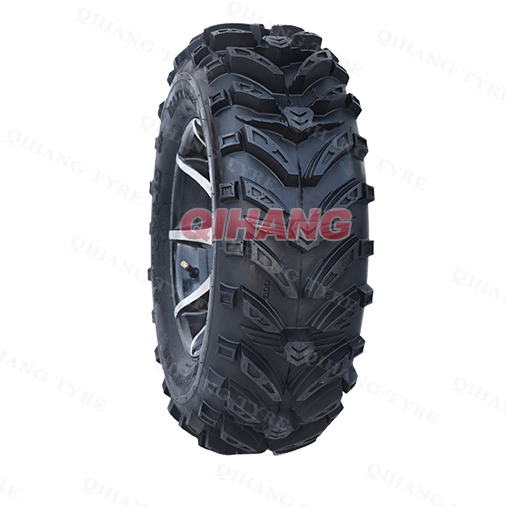As an important part of the tire industry, the development trend of the production process is affected by multiple factors such as technological progress, market demand changes and environmental protection requirements. The following is a detailed analysis of the development trend of industrial tire production process:
1. High degree of mechanization, automation and informatization
Mechanized production: The modern tire production line has achieved a high degree of mechanization, from rubber mixing, tire molding to vulcanization and other links, have adopted advanced mechanical equipment, greatly improving production efficiency.
Automation control: With the development of automation technology, the level of automation control in the tire production process is also constantly improving. Through the introduction of automatic control system, the precise control of the production process can be achieved, reducing human intervention and improving product quality.
Information management: Tire enterprises are actively promoting information management mode, through the establishment of a perfect information management system, to achieve real-time monitoring and analysis of production data. This helps enterprises find problems in the production process in time, optimize the production process, and improve production efficiency.
Second, technological innovation promotes industrial upgrading
Application of new materials: With the continuous progress of material science, new tire materials such as biodegradable materials and high-performance composite materials are being gradually applied to tire production. These new materials have better wear resistance, skid resistance and environmental performance, helping to improve the service life of tires and reduce the impact on the environment.
Intelligent manufacturing: Intelligent manufacturing is one of the important development trends in the tire industry. Through the introduction of intelligent manufacturing technologies, such as industrial robots, the Internet of Things, artificial intelligence, etc., intelligent, digital and flexible tire production can be achieved. This can not only improve production efficiency, but also quickly adjust production plans and product structure according to market demand.
Green manufacturing: With the improvement of environmental awareness, green manufacturing has become an important development direction of the tire industry. Tire companies are actively using more environmentally friendly production processes and materials, such as low-energy consumption, low-emission production equipment, environmentally friendly rubber additives, etc., to reduce environmental pollution.
Third, management optimization to enhance competitiveness
Fine management: Tire enterprises are gradually implementing the fine management model, through optimizing the production process, reducing production costs, improving product quality and other ways to enhance the competitiveness of enterprises.
Supply chain management: Optimizing supply chain management is also one of the important means for tire enterprises to enhance their competitiveness. Through strengthening cooperation with partners such as raw material suppliers and sales channels, the collaborative optimization of the supply chain can reduce production costs and improve market response speed.
Fourth, changes in market demand lead product upgrades
Personalized demand: With the continuous change of market demand, consumers' personalized demand for tires is also getting higher and higher. Tire companies need to continuously strengthen technology research and development and product innovation, and launch tire products that adapt to a variety of different use scenarios and user needs.
High-performance tires: With the continuous development of the automotive industry, the market demand for high-performance tires is also increasing. These tires have better wear resistance, skid resistance, silence and environmental performance, etc., which can meet the needs of consumers for high-quality tires.


